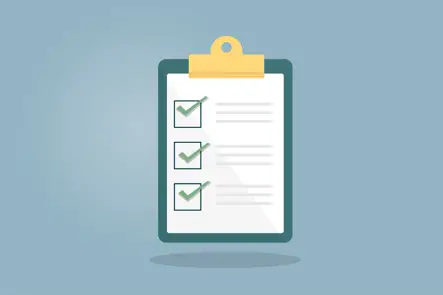Understanding Product Roles and Responsibilities in Tech Companies
In our previous blog post, we mentioned that a product role is responsible for the entire lifecycle of a product based on the company’s strategy. So, what are the classifications and responsibilities of product roles in an internet tech company?
The responsibilities of product professionals vary depending on the product cycle and product type. However, the main work of a product role is always linked to the product’s attributes.
This blog post will introduce you to several common types of internet products (tool-based, social, content, platform, and game products) and their corresponding job responsibilities.
Tool-based Products

People use tool-based products because they can provide convenience and help to users, thereby achieving their respective goals.
For example, English-Tagalog Dictionary helps users translate words, Canva helps users design graphics, weather software informs users about the weather, calculator software helps users complete calculations, etc. All these belong to tool-based products.
Tool-based products pay more attention to user experience, efficiency, coverage, etc. The responsibility of the product is more focused on how to maintain product growth and promote product optimization. Users mainly associate with tool products, creating a connection between people and objects.
For example, the product role at Canva is a typical tool-based product role.
Most tool-based products are used and left. The basic logic for product personnel is: user has a demand - use tool - achieve - leave.
The work is all about maximizing the tool attribute of the product by making a specific feature that attracts users to the extreme.
Content-based Products

The reason why users use content-based products is simple: to obtain fast, unique, high-quality content. Therefore, for content-based product roles, continuously allowing users to experience good content is the core of the work.
Traditional media industry, portal websites, video websites, or IP-based products all belong to content-based products. Text, sound, pictures, videos can all be carriers of content.
Common content-based products include: various news platforms (Rappler, ABS-CBN News, etc.), content communities (Quora, Reddit, etc.), public accounts, etc.
In addition to paying attention to data, content-based product roles also need to understand and master the display of content, topics, content matching degree, and other related situations.
For example, the product role that Rappler Company is recruiting clearly states what you need to do if you want to work in content-based products.
For content-based products, users mainly obtain content information through active (search, subscription, etc.) or passive (push, recommendation, etc.) methods.
Build a content module to allow users to get the content they are interested in the product, thereby improving various indicators such as user activity, retention, online time, etc.
Social Products

For users, using social products is to get interaction with other users. Therefore, product roles not only need to pay attention to data, but also need to deal with users. Common social products are divided into two categories: acquaintance social and stranger social.
Acquaintance social products: software such as Facebook, Viber
Stranger social products: dating, live broadcast and other software
This kind of social product obtains new users and retains them by planning some topics and activities. Social products need to deeply understand users, and even need to be loyal users of the product themselves. The main body of social products is that users and users are connected through products.
For example, the social product operation position of Facebook is a typical social product role.
Users and users are connected through the product, interact, and stay in the product based on each other’s attraction.
For social products, the work needs to revolve around the user and user interaction experience. All content is to allow users to better contact users.
Platform-based Products

If you sort all product types, platform-based products in internet companies must be the most complicated. Such as Lazada, Shopee, Twitter, group buying products, etc., can all be classified as platform-based products.
But it should be noted that platform-based products are often large in scale and may mix several other types of products at the same time, but their main function is still based on the platform.
The most important thing for platform-based product roles is - strategy optimization and scale. For example, a small e-commerce platform suddenly influxes a large number of merchants, but because there are too few users, it cannot achieve conversion, which will cause a large number of merchants to switch to other platforms.
On the contrary, a comprehensive news platform has a large number of users, but the number of updated news is limited, causing users to have no news to read. The worst case may cause users to uninstall the product.
As a platform product, it must be both strategy optimization and scale to optimize the product. For example, the product role of Lazada below reflects these characteristics.
For many platforms, they will experience the process of operating large modules from divisions and classifications to using algorithms to equip recommendations for refined operations.
Especially for many platforms, any omission will affect the user experience. Unlike tool-based products that are becoming more and more refined, for platform product roles, their work is always to make their product functions more and more comprehensive.
Conclusion
Many internet products are not completely single products, especially some large-scale products, which often have a mixture of multiple product forms.
But no matter what kind of product, no matter what stage of the product form, the responsibility of the product role is to listen to user needs, be responsible for product definition, planning, design, and ensure that the coordinating department completes the content through a series of responsible decisions.
So, as an international student, what abilities do you need to have to work in a product role? In the next blog post, we will be covering that.
Aniday's HR Services
Headhunting Service
Find and recruit quality candidates in just 1 week! Supported by 40,000 experienced headhunters in IT, Finance, Marketing… capable of recruiting in any region.
Headhunting Service ➔Employer of Record (EOR) Service
On behalf of your business, we recruit employees and handle payroll without the need to establish a company in markets such as Vietnam, Singapore, Malaysia, India, Indonesia…
Employer of Record (EOR) Service ➔